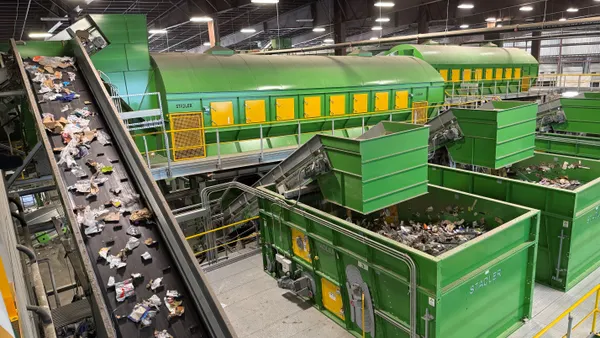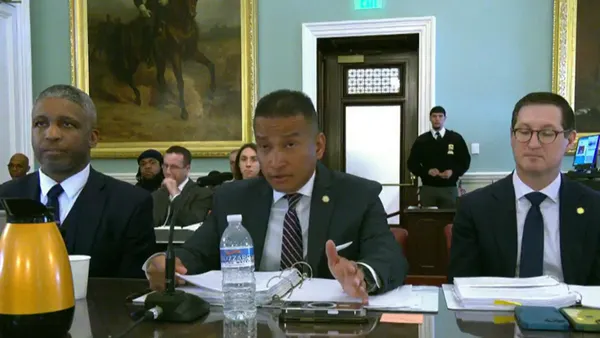Dive Brief:
- According to the Environmental Protection Agency (EPA), Americans discarded 35 million tons of food in 2012 -- more than any other waste type, including metal, plastic, paper, or glass.
- The figures show that the volume of leftover food tossed into the trash has risen every decade: in fact, the current rate is 20% more than food waste figures from 2000, 50% more than the volume tossed in 1990, and three times the volume of food discarded in 1960.
- Approximately one third of the food available across the globe is never eaten. Across the U.S., the figures are staggering: around 40% of food in the country ends up in a trash can, according to the Natural Resources Defense Council.
Dive Insight:
There are many big concerns associated with food waste. In many countries, people go without food -- even in the U.S., approximately 14% of the population struggles to eat, according to the USDA. Wealthier countries throw out more food annually than the total volume of food produced in sub-Saharan Africa. The UN says there’s actually enough food being produced worldwide to eradicate hunger -- it’s just a matter of preserving the food to eliminate spoiling.
Another problem with copious volumes of food waste is the amount of methane released by the spoils -- which is a significant threat to human health. U.S. landfills produce almost a quarter of the methane released into the air. The other issue that factors into the mix is the actual damage growing food has on the environment. The impact on the land is noticeable and resources are squandered when food waste like meat and vegetables and fruit are tossed into the trash.
Food waste occurs at every stage: from producers and distributors to retailers and consumers. The EPA estimates citizens dispose of 40 to 50% of food waste, while businesses discard around 50 to 60%.
A number of organizations are working to eliminate food waste -- but it’s proving difficult. For instance, the USDA is bringing the issue to the forefront by hosting panels and talks addressing the subject. A program operated by the Food and Agriculture Organization focuses on awareness, collaboration, policy development, and investment in an attempt to reduce the volume of food waste.













